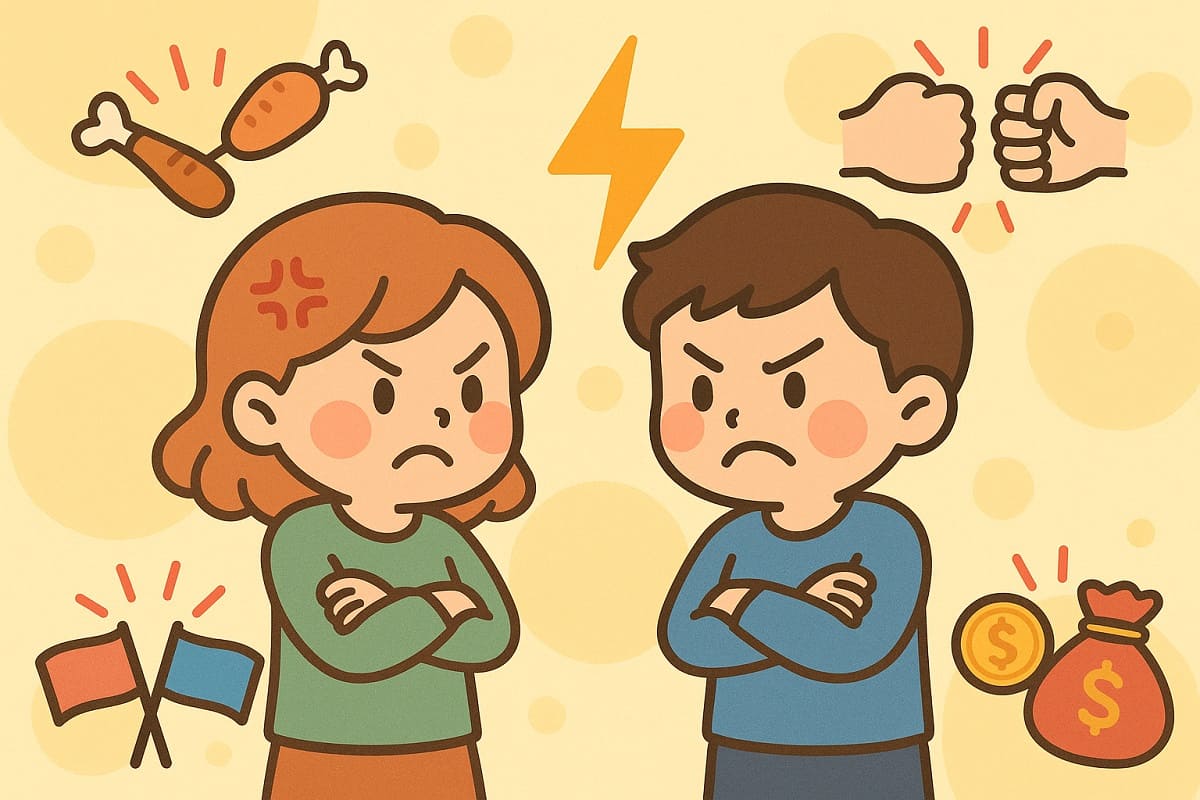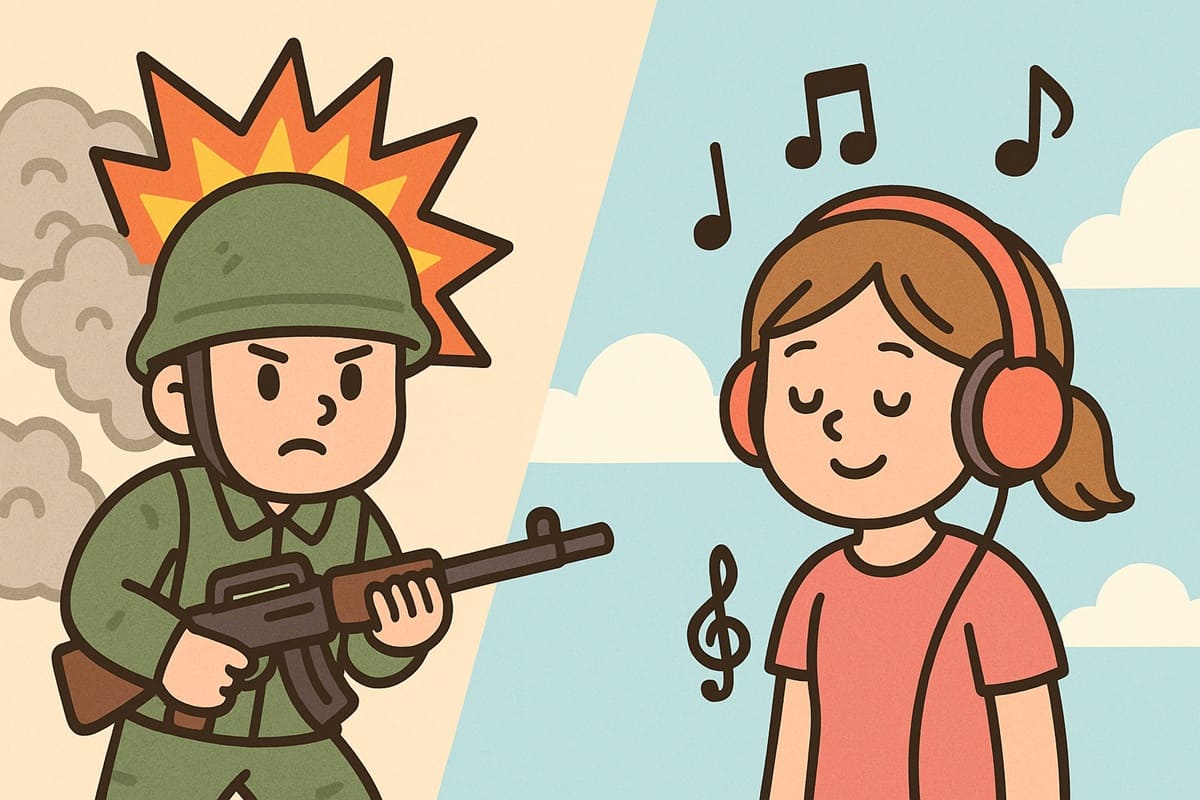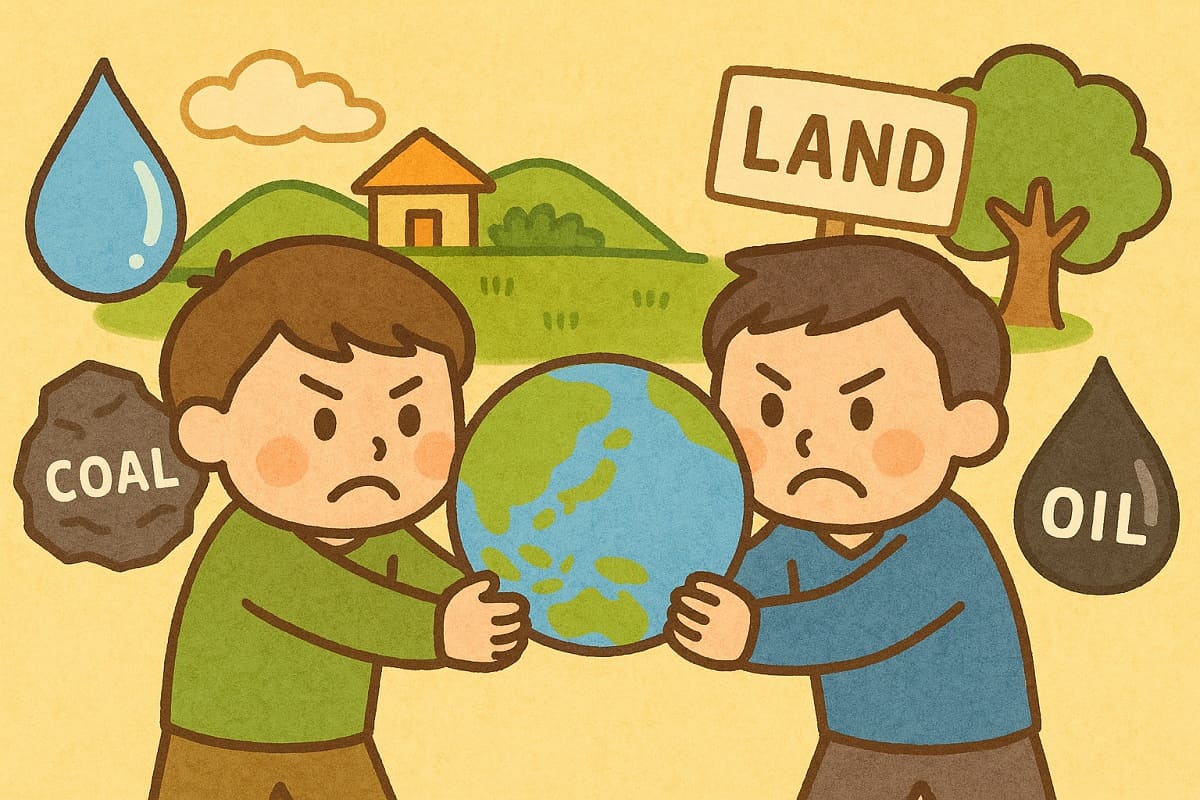What Is Anger Management? Let’s Learn How to Control Anger

“Why did they say that to me?” “I just can’t take it anymore!”
We all have moments in everyday life when we feel irritated or angry. It could be an argument with a friend, being scolded by a teacher, or seeing hurtful comments online. But what happens if you can’t control that anger and end up taking it out on people or objects?
That’s where the idea of “anger management” comes in. In this article, I’ll explain in an easy-to-understand way: What is anger in the first place? And how can we manage it better?
What Is Anger?
Anger is one of our natural emotions—everyone experiences it. For example, when something you care about is mocked or when you feel something is unfair, anger naturally arises.
Anger has an important role: it helps you protect yourself. If someone bullies you, without anger you wouldn’t have the energy to stand up for yourself. So, feeling angry itself is not a bad thing.
However, if you let anger take over—yelling or getting violent—you may end up regretting it or damaging your relationships. That’s why it’s crucial to learn “how to deal with anger.”
What Do You Do in Anger Management?
Anger management is the method of controlling your anger by yourself.
It originated in the U.S. in the 1970s as a psychological training method and is now used in schools, companies, hospitals, and other settings. In Japan, too, it’s increasingly being adopted in schools and corporate training programs.
The goal isn’t to become a person who “never gets angry,” but to become someone who can “stay calm when it’s necessary to be angry, and let go when it’s not.” In other words, the key is to understand your own anger and choose your actions wisely.
Why Do People Get Angry?
There are many reasons why people get angry, but most can be categorized into three main triggers:
1. When You Are Interrupted
It’s natural to get irritated when something you want to do is interrupted. For example, if your Wi-Fi suddenly cuts out while you’re gaming or if a friend cancels plans at the last minute, you’ll likely feel angry and think, “Why now?!”
2. When Something Feels Unfair
If you work hard and get a good grade on a test but receive no recognition, or if others are given special treatment, you may feel, “That’s so unfair!” leading to anger.
3. When Your Expectations Are Betrayed
When you think, “My friend should have helped me,” or “The teacher should have understood,” and those expectations are not met, people often feel strong anger.
At the root of anger lies our own set of beliefs—our “shoulds.” When reality doesn’t align with these beliefs, we feel frustrated and upset.
How to Control Anger
So how can you manage your anger effectively? Anger management offers several practical methods:
1. The “6-Second Rule”
The peak of anger lasts about six seconds. If you can ride out those six seconds, you’ll start to calm down. Try taking deep breaths or sipping a glass of water.
The key is not to react immediately. Even just stepping back and thinking, “I’m feeling angry right now,” can make a big difference.
2. Measure the Level of Anger
Anger has different levels, for example:
- Level 1: Slightly irritated
- Level 5: Frustrated and restless
- Level 10: About to explode or get physical
By “visualizing” your anger this way, it becomes easier to choose your actions. You can think, “This feels like a level 3, so maybe I don’t need to get angry right away.”
3. Reevaluate Your “Shoulds”
If you hold onto strict rules like “People should always be on time” or “They should apologize properly,” you may explode in anger over small things.
But if you rethink this and realize “That’s just my rule; others might think differently,” you can let things go more easily and reduce your anger.
4. Write It Down
When you’re angry, writing down your feelings and the events that triggered them can help organize your thoughts. Research even shows that tearing up the paper or throwing it away can help release anger.
5. Move Your Body or Dive Into a Hobby
Don’t leave those negative feelings bottled up. Exercise, listening to music, playing games—any activity that redirects your energy is a great form of anger management. The key is to creatively transform that energy into something positive.
Let’s Get Along with Anger
Anger is not your enemy. But if you let it control you, it can mess up your relationships and your own peace of mind.
By learning anger management, you can gain the ability to notice your emotions and handle them wisely. This not only improves your relationships with friends and family but also helps you take better care of yourself.
Those who know “what to do when they feel mad” have an emotional brake inside their hearts. You too can start practicing anger management in your daily life.
Main References
- Baron, R. A., et al. (2022). Anger and its management: A psychological approach to emotional regulation. Current Psychology, 41, 121–134.
- Novaco, R. W. (1975). Anger control: The development and evaluation of an experimental treatment. Lexington Books.
- Blair, R. J. R. (2012). The roles of orbitofrontal cortex in the modulation of antisocial behavior. Brain and Cognition, 84(1), 204–210.
- Deffenbacher, J. L., et al. (2002). Cognitive-behavioral conceptualization and treatment of anger. Journal of Clinical Psychology, 58(3), 295–309.
- Sukhodolsky, D. G., et al. (2004). Cognitive-behavioral therapy for anger in children and adolescents: A meta-analysis. Aggression and Violent Behavior, 9(3), 247–269.












